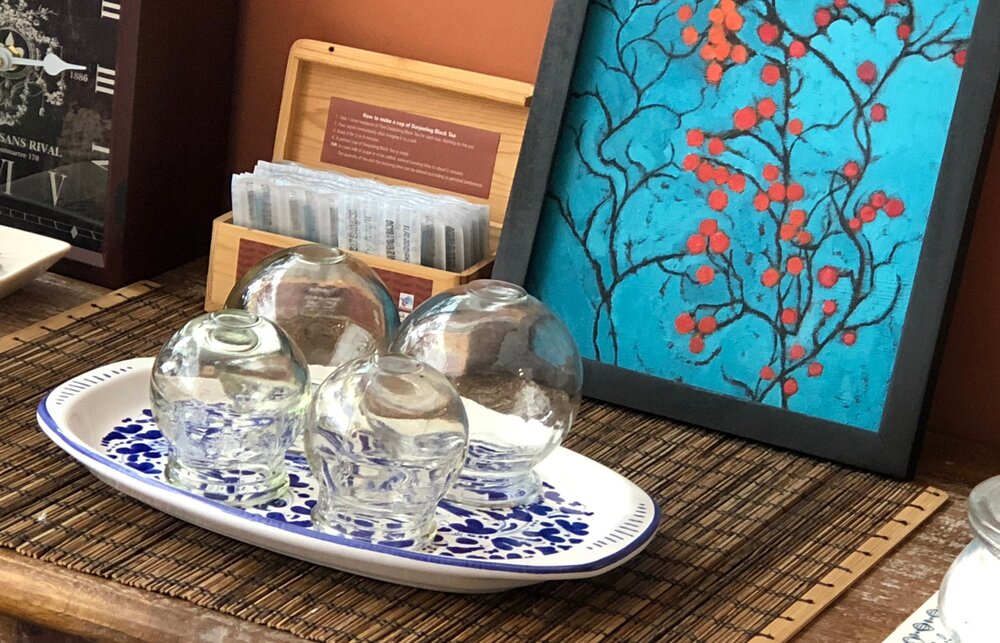5 Eastern Integrative Services

Eastern integrative services have become increasingly popular worldwide for their unique approach to health, wellness, and self-discovery. These services, which originated in Eastern cultures such as China, India, and Japan, offer a holistic approach to achieving balance and harmony in life. Here, we will delve into five Eastern integrative services that have gained significant attention and acclaim for their potential to transform lives.
1. Acupuncture
Acupuncture is a traditional Chinese medical practice that involves the insertion of thin needles into specific points on the body. It is based on the concept of qi (life energy) and its flow through the body, which is believed to be essential for health. By stimulating these points, acupuncture aims to restore the flow of qi, thereby treating a variety of health conditions, including pain, stress, and digestive issues. Acupuncture has been widely recognized for its effectiveness in managing chronic pain and is increasingly used in conjunction with Western medical treatments.
2. Ayurvedic Medicine
Originating from India, Ayurvedic medicine is one of the oldest systems of traditional medicine. The term “Ayurveda” means “the science of life” in Sanskrit. This approach focuses on the prevention of disease and the promotion of health through a combination of diet, lifestyle, and natural remedies. Ayurvedic practitioners believe that each individual has a unique constitution, and treatments are tailored to balance the body’s energies, known as doshas (Vata, Pitta, and Kapha). Ayurvedic treatments range from dietary advice and herbal remedies to massage and meditation, offering a comprehensive approach to wellness.
3. Yoga
Yoga is an ancient Indian practice that has become a staple of modern wellness routines worldwide. Initially intended as a spiritual practice to unite the body, mind, and spirit, yoga has evolved to encompass a wide range of physical postures (asanas), breathing techniques (pranayama), and meditation practices. These elements work together to promote flexibility, balance, strength, and relaxation, while also enhancing mental clarity and emotional well-being. With various styles such as Hatha, Vinyasa, Ashtanga, and Kundalini, yoga offers something for everyone, making it a versatile and accessible Eastern integrative service.
4. Traditional Japanese Medicine (Kampo)
Kampo, or traditional Japanese medicine, has its roots in traditional Chinese medicine but has evolved over centuries to include unique Japanese practices and herbal remedies. Kampo focuses on treating each patient based on their individual pattern of symptoms rather than the disease itself. This approach emphasizes the use of natural substances, especially herbs, to restore balance and promote healing. Kampo is used to treat a wide array of conditions, from digestive problems and allergies to stress and menstrual irregularities, offering a holistic alternative to conventional Western medicine.
5. Mindfulness and Meditation
Mindfulness and meditation have their roots in Buddhist and Hindu traditions, where they were practiced as paths to spiritual enlightenment. Today, these practices are recognized for their profound effects on mental and physical health. Mindfulness involves paying attention to the present moment in a non-judgmental way, while meditation encompasses a range of techniques to quiet the mind and focus awareness. Regular practice of mindfulness and meditation has been shown to reduce stress, improve emotional regulation, enhance cognitive function, and promote a sense of well-being and connection. These practices are accessible to anyone and can be incorporated into daily life, making them a valuable Eastern integrative service for modern living.
Conclusion
Eastern integrative services offer a profound way to approach health and wellness, focusing on the interconnectedness of body, mind, and spirit. By embracing these practices, individuals can move towards a more holistic understanding of themselves and the world around them, leading to a more balanced, harmonious, and fulfilling life. Whether through the physical postures of yoga, the energetic balance of acupuncture, the natural remedies of Ayurveda and Kampo, or the mental clarity of mindfulness and meditation, there is an Eastern integrative service that can cater to the unique needs and aspirations of each individual.
FAQ Section
What is the main difference between Eastern integrative services and Western medicine?
+Easter integrative services focus on treating the individual as a whole, including physical, mental, and spiritual aspects, whereas Western medicine often targets specific diseases or symptoms. This holistic approach is a key distinction between the two.
Can Eastern integrative services be used in conjunction with conventional medical treatments?
+Yes, many people use Eastern integrative services alongside conventional medical treatments. It’s essential to consult with both your conventional healthcare provider and the practitioner of the Eastern service to ensure safe and effective complementary care.
How do I choose the right Eastern integrative service for my needs?
+Consider what you hope to achieve through the service, whether it’s physical healing, stress reduction, or spiritual growth. Research the different options, read reviews, and consult with practitioners to find the best fit for your goals and preferences.

